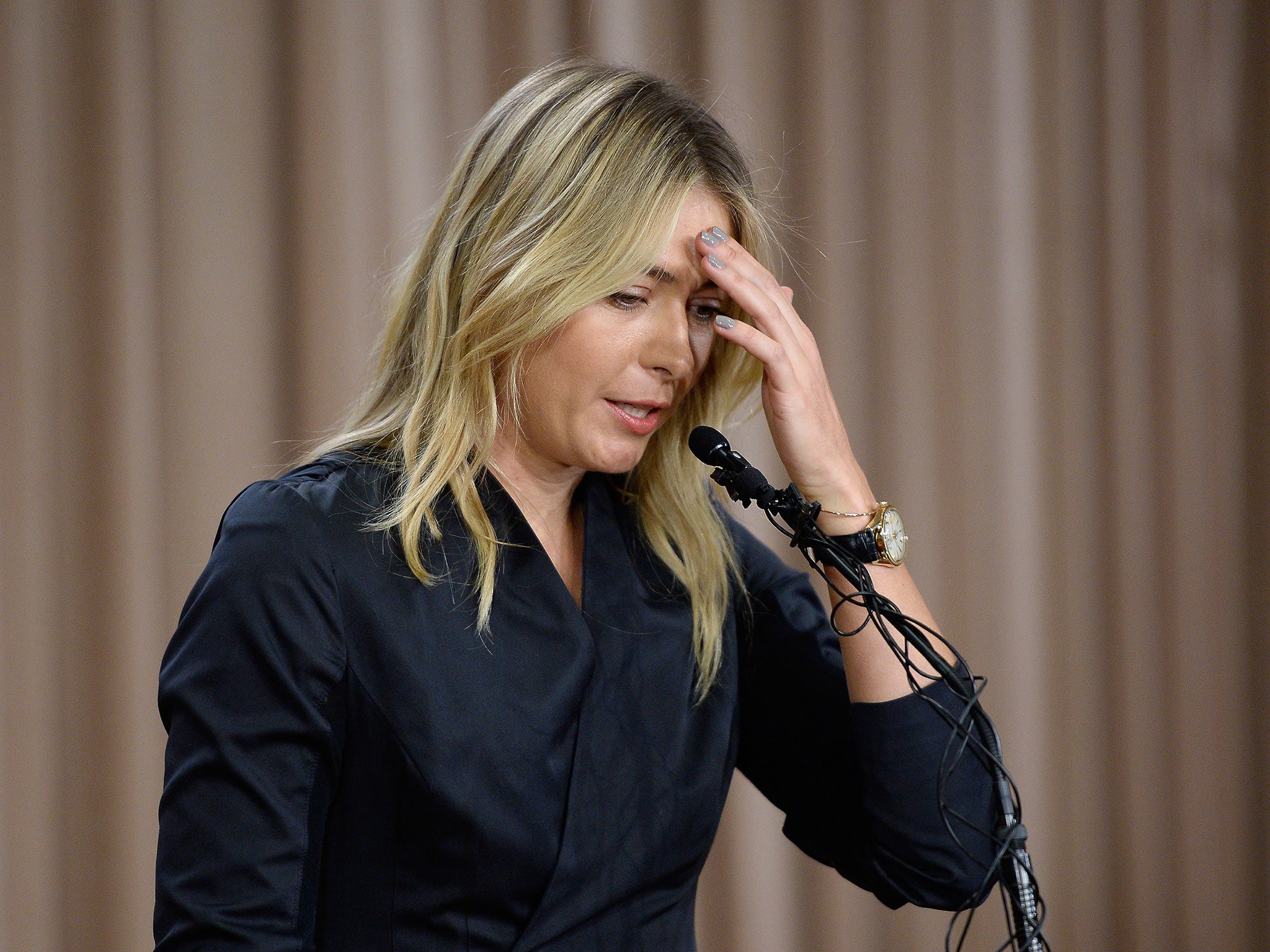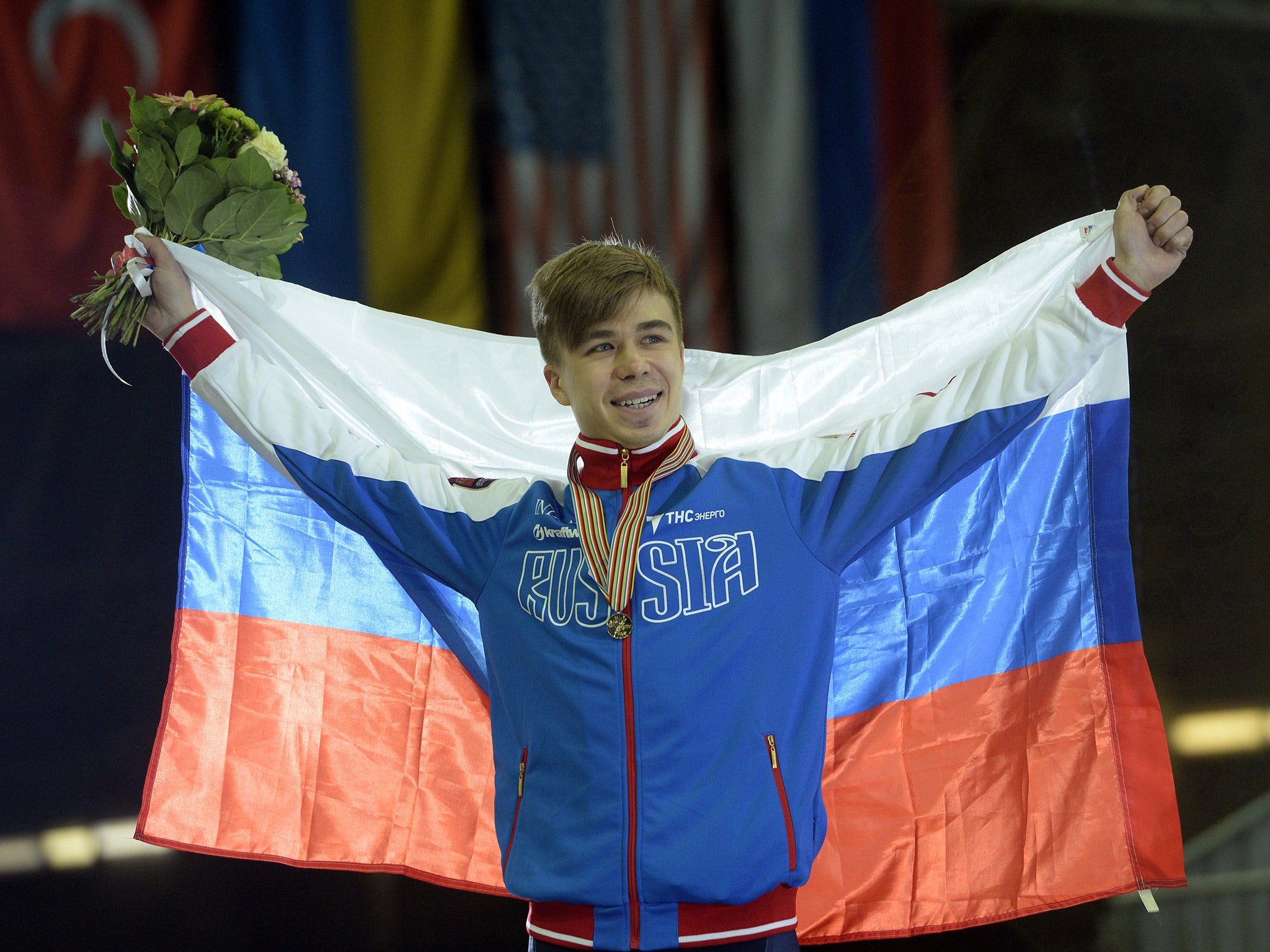Meldonium: Four more Russian athletes test positive for same banned drug as Maria Sharapova
Sharapova admitted to using meldonium after it was added to Wada's banned substances list on 1 January 2016

Your support helps us to tell the story
From reproductive rights to climate change to Big Tech, The Independent is on the ground when the story is developing. Whether it's investigating the financials of Elon Musk's pro-Trump PAC or producing our latest documentary, 'The A Word', which shines a light on the American women fighting for reproductive rights, we know how important it is to parse out the facts from the messaging.
At such a critical moment in US history, we need reporters on the ground. Your donation allows us to keep sending journalists to speak to both sides of the story.
The Independent is trusted by Americans across the entire political spectrum. And unlike many other quality news outlets, we choose not to lock Americans out of our reporting and analysis with paywalls. We believe quality journalism should be available to everyone, paid for by those who can afford it.
Your support makes all the difference.Four more Russian athletes have tested positive for the banned substance meldonium, less than a month after leading tennis star Maria Sharapova revealed she failed a drug test for the same performance enhancer.
The revelation comes at a time when Russia is attempting to have its doping ban overturned in time to compete at the Rio Olympics later this year, with at least 16 Russian athletes now found to have tested positive for meldonium since the World Anti-Doping Agency [Wada] added it to its prohibited substances list on 1 January 2016.
Sharapova left the world over stunned when she admitted to taking meldonium throughout her career, including the time period between its ban at the start of this year and her positive test on 26 January when she was competing at the Australian Open.
As well as Sharapova, speed skating Olympic gold medallist Semion Elistratov has tested positive for meldonium, and the head of the Russian Athletics Federation Dmitry Shlyakhtin has confirmed that four more unnamed athletes have given positive samples for meldonium.
“We have information that four people gave positive tests for meldonium. We will deal with this today,” Shlyakhtin was quoted as saying by the Interfax news agency.
Shlyakhtin did not identify the four athletes in question, and it is not known if Nadezhda Kotlyarova – who admitted on Sunday that she has taken meldonium – is one of the four in question.
The news is a blow for Russia’s hopes of regaining their entry to the Rio Olympics due to the ban imposed on them by the International Association of Athletics Federations [IAAF] that could yet see the leading nation miss the summer Olympic Games in August this year.
The Russian sporting minister, Vitaly Mutko, claimed earlier this month that meldonium had nothing to do with Russian sport after an investigation into allegations of widespread doping in Russia, led by former Wada president Dick Pound, found evidence of state-sponsored doping programmes.
As quoted by the TASS news agency on 11 March, Mutko said: “Everyone who is preparing for the games is being monitored. But the issue of meldonium is a separate issue,” TASS news agency quoted him as saying.
“The testing plans are completely clear. Our sportsmen have been warned - they can be tested at any time. Their task is to prepare for international competition.”

Although there have been 16 confirmed positive drug tests for meldonium by Russian athletes in 2016, Russia’s R-Sport news agency claims that around 40 athletes from Russia across more than 10 different sports have tested positive for the banned substance during January and February, while the total number of positive tests from multiple countries has already exceeded 100 in 2016.
Join our commenting forum
Join thought-provoking conversations, follow other Independent readers and see their replies
Comments